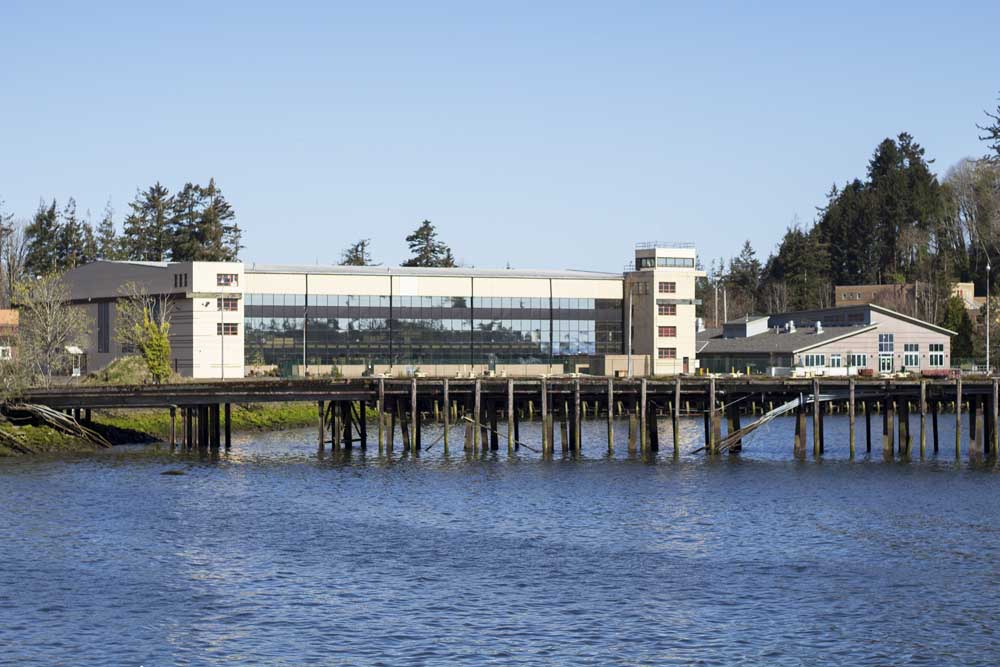Nurseryman carves unique niche
Published 4:00 pm Tuesday, November 29, 2011
For nursery owner Mark Krautmann, farming started early.
As a 3-year-old, he said, he would fill his little red wagon with nuts from the local park.
I guess I have 56 years experience in seed collecting, he said. But it took me to age 30 to put that to practice and make a dollar out of it.
Conservationism also took root early in Krautmanns life.
His grandfather, Gene Poirot, whom Krautmann describes as his hero, was a farmer, an early advocate of environmentally sound farm practices, and the author of two books.
A fascination with plants also took root early for Krautmann.
Krautmann said his mother, who had a degree in botany, often would take him to see native plants. He recalls being fascinated as a child by the square stem of a mint plant.
I thought that was just amazing, he said.
Add this together, and its easy to see why Krautmann ended up doing what he does.
Krautmann owns and manages Heritage Seedlings, a nursery that specializes in unusual deciduous woodies, and grows native plants and seeds for environmental restoration.
Krautmann said his motivation for starting the nursery was to stop commuting to Portland from his home in Salem.
We rented 5 acres and it just took off like a rocket, he said.
Today Mark and his wife, Jolly, own several hundred acres, with 200 acres in field production and another 20 acres in greenhouse and hoophouse production.
Heritage Seedlings also produces native wildflower seeds and sedges and grasses on a 400-acre farm near Jefferson.
Krautmann uses the Jefferson farm to educate school children and decision makers about the benefits of native plants.
It is one thing to do native plant restoration on a farm, but if you can use that as an example for others, then it becomes a much more powerful tool for education, he said.
Krautmanns environmental stewardship has not gone unrecognized. The Oregon Department of Agriculture in its annual Agricultural Progress Awards banquet this year honored Krautmann with its Excellence in Conservation award for extensive work to rehabilitate and restore native habitat on lands associated with his nursery operation through numerous conservation efforts.
Krautmann grew up on a farm in Missouri and majored in soil science at the University of Missouri. Later, he obtained a masters degree in soil microbiology from Texas A&M.
In 1978, on the advice of a Texas A&M professor, Krautmann and his wife packed their belongings onto a 1967 flatbed Ford and moved to Oregons Willamette Valley.
We came through the (Columbia River) gorge at night, and it was just stunning, Krautmann said.
Krautmann said he decided to specialize in what he terms unusual deciduous woodies and perennials because, I always wanted to grow really unusual things.
The Krautmanns opened the nursery in 1981. The nursery is headquartered in Salem.
Krautmann runs Heritage Seedlings with a focus on efficiency and sustainability.
His operation is powered by a $460,000 array of solar panels that he says will pay for itself in five years.
He reuses soil from discarded plants and pushes 170-degree steam through it to kill weed seeds.
We just had this mountain of soil building out here. Now we steam it all and reuse it, he said. That keeps it out of the waste stream and cuts down on our soil costs, accounting for about 30 percent in our new mix.
Steaming the soil frees up labor from pulling weeds, he said, allowing workers to do what he refers to as value-added jobs, such as staking and grafting plants.
Heritage also steams propagation flats to 170 degrees and reuses them.
Krautmann said Heritage, like other nurseries, is feeling the pinch of the recent recession. His sales fell about 40 percent from their peak in the mid-2000s before rebounding this year, he said.
He believes one reason sales are recovering is because he and Jolly have spent more time the last few years visiting farms and attending garden center shows.
Heritage also cut back on inventory during the recession, he said.
Inventory is the biggest single factor affecting business these days, he said. You cant value inventory like you did four or five years ago.
People pretty much could sell what they grew for a generation in this industry, he said. It brought the Oregon industry to almost a billion dollars in farm-gate value, but, of course, that has receded substantially.





